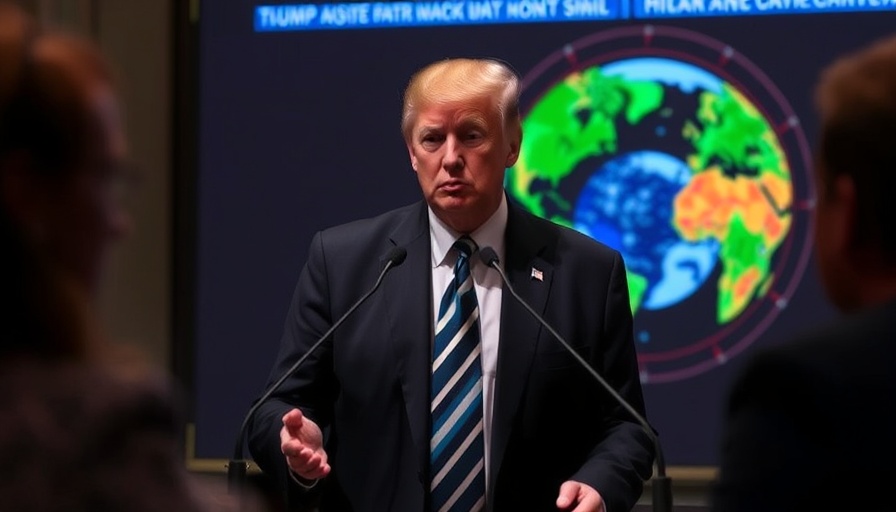
Trump's Controversial AI Push: What You Need to Know
In a move that's already igniting fierce debates, the Trump administration has recently announced a plan to accelerate the growth of the artificial intelligence (AI) sector, a decision that has drawn considerable backlash from climate advocates. The aggressive scheme aims to dismantle various environmental regulations to streamline the construction of infrastructure necessary for AI development, including data centers and semiconductor facilities.
The plan, which was detailed in a 28-page document, claims the removal of 'bureaucratic red tape' will help advance AI technologies. However, critics, including environmentalists, see it as a stark invitation for industries to exploit natural resources recklessly. Mitch Jones from Food and Water Watch argues that this initiative prioritizes corporate interests over the sustainability of communities and ecosystems.
Environmental Impact: A Growing Concern
Current research highlights alarming statistics regarding AI’s environmental footprint. For example, ChatGPT reportedly consumes more energy daily than 180,000 typical American households. Furthermore, projections indicate that by 2028, energy usage by AI data centers could triple, impacting water resources and power supply across the nation. This considerable demand poses a fundamental question: Can we responsibly develop AI without sacrificing our environment? The new plans might exacerbate these issues, leading to increased regulatory challenges for sustainable practices in the tech industry.
AI's Dilemma: Innovation vs. Sustainability
As the AI industry continues to grow, it faces the dilemma of innovation at the potential cost of sustainability. The latest moves by the Trump administration come at a time when public sentiment is increasingly leaning towards greener, more responsible tech practices. This clash between rapid AI development and environmental stewardship necessitates a robust public discourse. How can AI innovation ensure that natural resources are not depleted, and ecosystems are not jeopardized? This dynamic tension raises important ethical and practical considerations for the future.
The Future of AI: Opportunities and Risks
The rapid evolution of AI technology opens up exciting opportunities but also harbors significant risks, particularly concerning sustainability and ethical implications. It is essential for tech developers and policymakers alike to not only embrace AI breakthroughs but also ensure that they are integrated into a framework that prioritizes responsible governance, ethical designs, and environmental conservation. Social good and technological advancement must go hand in hand.
Conclusion
The implications of fast-tracking AI development at the expense of environmental health are profound. As global citizens, understanding these developments equips us with the knowledge to advocate for responsible innovation. Given the crossroads we face, it is crucial to engage in discussions about sustainable practices that align with the technological strides we are making. With a thoughtful approach, the future of AI can bring about not only progress but also prosperity that upholds both innovation and our planet's wellbeing.
 Add Row
Add Row  Add
Add 




Write A Comment